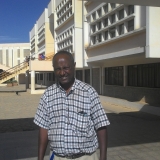This research aims to enhance informed policy-making and sustainable management of natural resources in Ethiopia through furthering our understanding of the factors that contribute to success (better outcome in forest commons). The research intends to investigate the interplay between the user characteristics, resource characteristics, and the institutional regime as they determine better forest outcome at a more deeper level using household level dataset.
Garrett Hardin viewed that the users of a commons (common-property resources) were trapped in inexorable tragedy and unable to engage to self-organize and extricate themselves from drastic overuse and destruction. Since the mid-1980s extensive scholarship have challenged this Garrett Hardin’s contention and have strongly built a case in favor of the assertion that users of a commons can self-organize themselves (construct institutions) to sustainably manage/use these/their natural resources.
Most prominent views that have emerged in these regards include: (i) pattern of interaction between/ among user characteristics, resource (product) characteristics and institutional regime, (ii) expected benefits exceed expected costs and (iii) existence of norm based culture of reputation, trust and reciprocity in the community in question are important for successful (sustainable) self-governance of natural resources commons. However, except for some experimental evidence the literature so far has been particularly very scarce especially in terms of empirically validating these theoretical conjectures or assertions.
The objectives of this study are: (i) to empirically analyze the interplay between the user characteristics, resource characteristics, and the institutional regime and determine the important factors for successful CPR; and (ii) testing the application of tools from applied/empirical IO for the analysis of CPR issues. Specifically, the research focuses on forest commons in Ethiopia.
This study will inquire into main question: why is it that some local self-governing systems or institutions are sustainable and durable while others fail? How do user characteristics and preferences matter? How do user characteristics and resource characteristics interact or what are the channels through which these determine better forest outcome? Ostrom’s SES framework will be used in this research as guiding broader conceptual framework that can be applied to identify important variables and relevant theory to be tested. Moreover, at the empirical level the study will apply tools from applied/ empirical industrial organization (hereafter IO). Most important innovations or contributions of this research to the existing knowledge are: firstly, the research will enhance the state of knowledge in terms of empirically testing the significance of these most prominent views (theoretical conjectures). Secondly, it provides insights about what makes CPRs successful based on household data. However, more importantly, there appears to be a methodological gap in terms of combining the user characteristics, resource characteristics, and the institutional regime of CPRs into a consistent and coherent empirical framework. Therefore, the study also contributes on methodological front by testing the application of tools from applied/empirical industrial organization for the analysis of CPR issues. By doing so the research shades light on some of the important issues in the commons dilemma.
